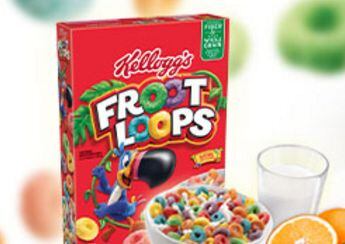The legal dispute*, which has been going on since 2014, centers on Chobani’s ‘0%’ claim (which has more recently changed to 0%milkfat), the term ‘Greek Yogurt,’ and the term ‘evaporated cane juice.’
According to the plaintiffs, Chobani has chosen to use the term evaporated cane juice (instead of sugar) to “conceal” the fact it is adding sugar to its yogurts, while the 0% could be construed as implying that yogurts featuring this claim are “free of sugar, carbohydrates [and/or] calories.”
Finally, they added: “Chobani intentionally marketed its products as ‘America’s top Greek yogurt.’ However, there is nothing ‘Greek’ about the Chobani product. None of the product sold in the US is made in Greece, made by Greek nationals, or made with a distinctively Greek manufacturing process.”
‘As with Danish pastry, reasonable consumers in this country know that ‘Greek’ refers to a type of yogurt’
Chobani’s attorneys, however, said 'reasonable consumers' – which are held by courts to be the relevant audience in such cases – are neither deceived nor confused by these terms.
“Plaintiffs describe a ‘reasonable consumer’ unrecognized by law, one who is uninformed about food products in general and oblivious to context,” they claim.
“Common sense dictates that, as with Danish pastry, reasonable consumers in this country know that ‘Greek’ refers to a type of yogurt, one that courts have described as ‘creamier’ in texture and ‘richer in protein.’ In this way, the ‘Greek’ in Greek yogurt serves the same function as the ‘French’ in French fries or ‘Philadelphia’ in Philadelphia cream cheese… The label [also] clearly states the place of manufacture: an address in New York [not Greece].
“Similarly, consumers know that ‘0%’ on the label of yogurt—a product found in the dairy aisle, with a percentage milkfat disclosure and several nonfat statements on the label, and a Nutrition Facts Panel that shows the amount of fat, calories, sugars, and carbohydrates in the product—means milkfat. Here again, plaintiffs advance an interpretation that defies logic—that ‘0%’ refers to pretty much everything in the yogurt, i.e., calories, sugars, carbohydrates. Consumers know better.”
‘The reasonable consumer is an ordinary person, acting reasonably under the circumstances’
Moreover, they add, in the highly unlikely event that consumers think 0% refers to sugar or calories - even though neither are ever expressed on food labels as percentages - there are other contextual clues that would disabuse them of this notion: “The ingredient list states that ‘nonfat milk’ is an ingredient. Plaintiffs cannot seize on only some statements while disregarding others.
“So, while plaintiffs’ theory counts on a consumer who is a veritable fool, that is not the law. The reasonable consumer is an ordinary person, acting reasonably under the circumstances.”

"The reasonable person has not been dumbed down over the years, but not for lack of trying by the class-action plaintiffs’ bar."
Rick Shackelford, co-chair, Class Action Litigation Group, Greenberg Traurig
Attorney: ‘The reasonable person is not gullible enough to fall for anything’
But just how savvy is the ‘reasonable' consumer?
In a July 29 legal backgrounder published by the Washington Legal Foundation [not related to the Chobani case] Rick L. Shackelford, co-chair of the Class Action Litigation Group at law firm Greenberg Traurig, notes that different states and different stakeholders all have slightly different interpretations of who the ‘reasonable’ consumer is.
In California, where scores of food-related false advertising cases have been filed, Shackelford noted, courts have been pressed to adopt a “least sophisticated consumer” standard, whereby consumers are deemed “unwary, unsophisticated and gullible,” but have in general chosen to observe the Federal Trade Commission’s (FTC’s) 1983 standard of a “consumer acting reasonably in the circumstances.”
‘No reasonable person would believe such far-fetched things’
He added: “The reasonable person has not been dumbed down over the years, but not for lack of trying by the class-action plaintiffs’ bar.

“Especially in the food-and-beverage space, consumers have claimed they believed things like: (i) Cap’n Crunch Crunch Berries and Froot Loops breakfast cereals contain real fruit; (ii) a green water drop on a label means the product is environmentally conscious; (iii) vegetable crackers are primarily made of fresh vegetables; and (iv) ice cream described as 'classic' and 'based on a 1928 recipe' is more healthy or nutritious than other ice creams.
“Each of these claims was dismissed on the grounds that no reasonable person would believe such far-fetched things.”
Of course, what food marketers define as 'common sense' and what consumer advocates would see as such may well be different, plaintiff's attorney Ben Pierce Gore told FoodNavigtor-USA in a 2013 interview in which he discussed why he had filed so many lawsuits over evaporated cane juice.
"People will always say that these cases are frivolous. But when you really look at what’s on food labels you start to arrive at the conclusion that the food industry needs to clean up its act... Our kids are swimming in sugar; there’s an epidemic of type two diabetes, and part of the problem is that we’re eating all this sugar without even realizing it because it’s hidden behind terms like ‘evaporated cane juice’."
*The case is Stoltz et al vs Chobani LLC et al 1:14-cv-03827 in the US district court in the eastern district of New York.
